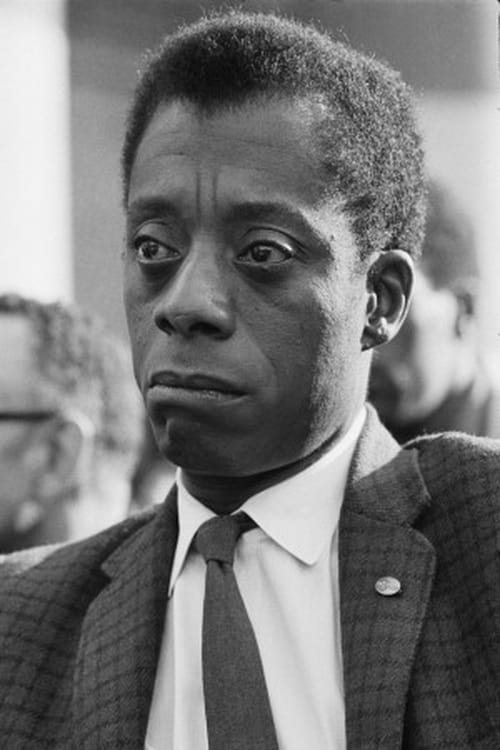James Baldwin
出生 : 1924-08-02, Harlem, New York, USA
死亡 : 1987-12-01
略歴
James Arthur Baldwin was an African-American novelist, essayist, playwright, poet, and social critic. His essays, as collected in Notes of a Native Son, explore palpable yet unspoken intricacies of racial, sexual, and class distinctions in Western societies, most notably in mid-20th-century America, and their inevitable if unnameable tensions.

Writer
Showcasing three short films by American writer James Baldwin, wherein he muses about race, sexuality and civil rights, among other topics, in Istanbul, Paris and Great Britain.

Himself
Showcasing three short films by American writer James Baldwin, wherein he muses about race, sexuality and civil rights, among other topics, in Istanbul, Paris and Great Britain.

Self (archive footage) (uncredited)
Filmed in Lisbon, Portugal, the film captures the pop icon’s rare and rapturous tour performance, hailed by sold out theatrical audiences worldwide. The unprecedented intimate streaming experience will take viewers on a journey as compelling and audacious as Madonna’s fearless persona, Madame X, a secret agent traveling around the world, changing identities, fighting for freedom and bringing light to dark places.

Self (voice) (archive footage)
I ran from it and was still in it poetically interweaves personal family memories with original and found footage to offer a more complex portrait of familial loss and separation. Kae wades through deep emotions surrounding the death of his father and the sudden relocation of his children, repurposing intimate family scenes from his personal archive by pairing them with online media from a variety of sources to explore how the autobiographical model can potentially extend beyond the personal.

Through clippings, the film draws a narrative line between the construction of racism in Brazil and the United States, having as base the European invasion of the continent, police violence, the genocide of the black people, the massacre of indigenous peoples, religious violence, the criminalization of funk music, structural racism in art and education, the importance of quota policy and the need urgent historical repair as a commitment by the Brazilian state to the black people.

Novel
ジェイムズ・ボールドウィンの原作をバリー・ジェンキンス監督が映画化したラヴ・ストーリー。キキ・レイン、ステファン・ジェイムス演じる若き男女が、さまざまなアクシデントやトラブルを乗り越え、愛を深めていくまでを描く。
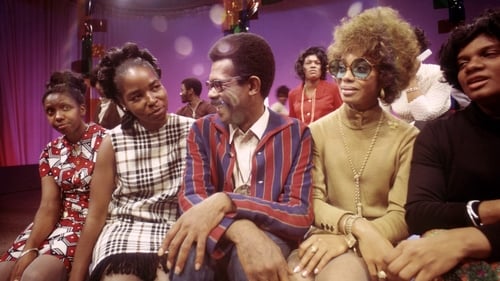
Self (archival footage)
On the heels of the Civil Rights Movement, one fearless black pioneer reconceived a Harlem Renaissance for a new era, ushering giants and rising stars of black American culture onto the national television stage. He was hip. He was smart. He was innovative, political, and gay. In his personal fight for social equality, this man ensured the Revolution would be televised. The man was Ellis Haizlip. The Revolution was soul!

Archive Footage
TARGET ST. LOUIS Vol. 1© tells the story of how the United State Military conducted secret chemical testing on citizens of St. Louis's Northside. Told through the eyes of the survivors who bravely share their experiences of being unwitting test subjects. Long before the current scandal of lead poisoning of the water supply of Flint, Michigan, the United States Army conducted secret experiments on unknowing residents of northern St. Louis using toxic chemicals. The predominantly African American residents of northern St. Louis are the focus of this film. "Target: St Louis Vol. 1" shares their disturbing story of how these Cold War experiments occurred and the film examines the actions of the US Military that extended beyond the guarantees of public safety promised to US citizens by the Constitution.
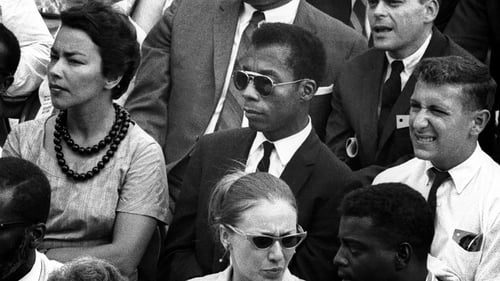
Writer
Working from the text of James Baldwin’s unfinished final novel, director Raoul Peck creates a meditation on what it means to be Black in the United States.

Self (archive footage)
Working from the text of James Baldwin’s unfinished final novel, director Raoul Peck creates a meditation on what it means to be Black in the United States.

Self
"A great many conundrums." An assemblage of found footage.

Himself (Archival Footage)
"A person is more important than anything else…," is driven by the cadence and intonation of James Baldwin’s voice, for Baldwin was also an orator whose delivery was almost as forceful as his ideas. Artist Hank Willis Thomas weaves various audio, images, and video together including news clips, speeches, and interviews, in a fluid-moving, digital stream of consciousness that connects Baldwin’s 20th century discourse with the concerns and urgencies of the 21st, highlighting issues of race, gender, class and sexuality. Commissioned in 2014 by NY Live Arts for the Year of James Baldwin, this multi-channel installation brings history to the fore, inspiring us to re-imagine our relationship to the contemporary moment.
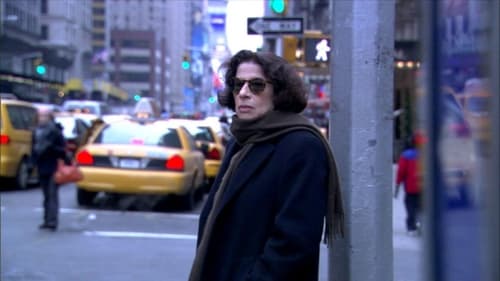
Self (archive footage)
A feature-length documentary starring Fran Lebowitz, a writer known for her unique take on modern life. The film weaves together extemporaneous monologues with archival footage and the effect is a portrait of Fran's worldview and experiences.

The James Baldwin Anthology consists of internationally known writer James Baldwin's historic speech at UC Berkeley in 1979, his answers in a dialogue with Malcom X in the ’60s, and series of original mixed media images done by Claire Burch as a memorial after his death in 1987. Following this material is an additional half hour which contains an interview with the late Professor Erskine Peters who was host to Jimmy at this time, and footage of a session at Cody’s Bookstore in Berkeley, California where author David Lemming reads from his biography of Jimmy and describes Baldwin’s sad and funny efforts to bring a close friend, the painter Beauford Delaney, from a psychiatric unit in France to Turkey where Jimmy was living at the time.

Novel
The film utilizes the story-telling format to create a multilevel narrative that explores the relations between speech, language, and desire. Addresses issues of sexuality, subjectivity, tradition, and identity in gay Asian contexts.

Self (archive footage)
James Baldwin was at once a major 20th century American author, a Civil Rights activist and, for two crucial decades, a prophetic voice calling Americans, black and white, to confront their shared racial tragedy.

Himself
For more than 100 years, the Statue of Liberty has been a symbol of hope and refuge for generations of immigrants. In this lyrical, compelling and provocative portrait of the statue, Ken Burns explores both the history of America’s premier symbol and the meaning of liberty itself. Featuring rare archival photographs, paintings and drawings, readings from actual diaries, letters and newspapers of the day, the fascinating story of this universally admired monument is told. In interviews with Americans from all walks of life, including former New York governor Mario Cuomo, the late congresswoman Barbara Jordan and the late writers James Baldwin and Jerzy Kosinski, The Statue of Liberty examines the nature of liberty and the significance of the statue to American life. Nominated for both the Academy Award ® and the Emmy Award ®, The Statue of Liberty received the prestigious CINE Golden Eagle, the Christopher Award and the Blue Ribbon at the American Film Festival.
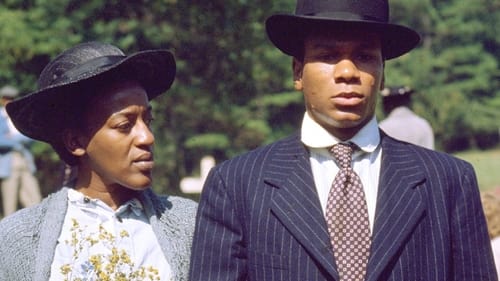
Novel
This film adaptation of James Baldwin's celebrated novel tells the journey of a family from the rural South to "big city" Harlem seeking both salvation and understanding and of a young boy struggling to earn the approval of a self-righteous and often unloving stepfather.

James Baldwin retraces his time in the South during the Civil Rights Movement, reflecting with his trademark brilliance and insight on the passage of more than two decades. From Selma and Birmingham and Atlanta; to the battleground beaches of St. Augustine, Florida, with Chinua Achebe; and back north for a visit to Newark with Amiri Baraka, Baldwin lays bare the fiction of progress in post–Civil Rights America, wondering “what happened to the children” and those “who did not die, but whose lives were smashed on Freedom Road.”

Self
In Istanbul, American writer James Baldwin muses about race, the American fascination with sexuality, insights into his interrupted writing decade in the country, the generosity of the Turks, and how being in another country, in another place, forces one to re-examine well-established attitudes about modern society.

Self
An extremely rare film document photographed by Jack Hazan in several symbolic locations, including the Place de la Bastille. As Hazan recounts: “Things don’t go to plan for him and the film crew when a couple of young black Vietnam draft dodgers impose themselves on the American. Baldwin wrestles with being a role model to the black youths, denouncing Western colonialism and crimes against African Americans while at the same time demonstrating his mastery and understanding of the culture he supposedly despises”.

Self (archive footage)
Constructed from a wealth of archival footage, the documentary follows Dr. Martin Luther King, Jr. from 1955 to 1968, in his rise from regional activist to world-renowned leader of the Civil Rights movement. Rare footage of King's speeches, protests, and arrests are interspersed with scenes of other high-profile supporters and opponents of the cause, punctuated by heartfelt testimonials by some of Hollywood's biggest stars.
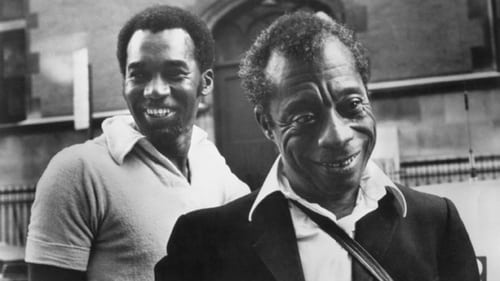
Himself
James Baldwin and Dick Gregory discuss the Civil Rights Movement in 1960s Great Britain.

Himself
The Cambridge Union Society debates the motion "Has the American Dream Been Achieved at the Expense of the American Negro?" on its 150th anniversary. David Heycock and James Baldwin argue the Affirmative. Jeremy Burford and William F. Buckley argue the Negative.

Self
Take This Hammer features KQED's mobile film unit following author and activist James Baldwin in the spring of 1963, as he's driven around San Francisco to meet with members of the local African American community.

Self
James Baldwin, a stranger in a Swiss village in 1962, reflects on ordinary and universal racism.
